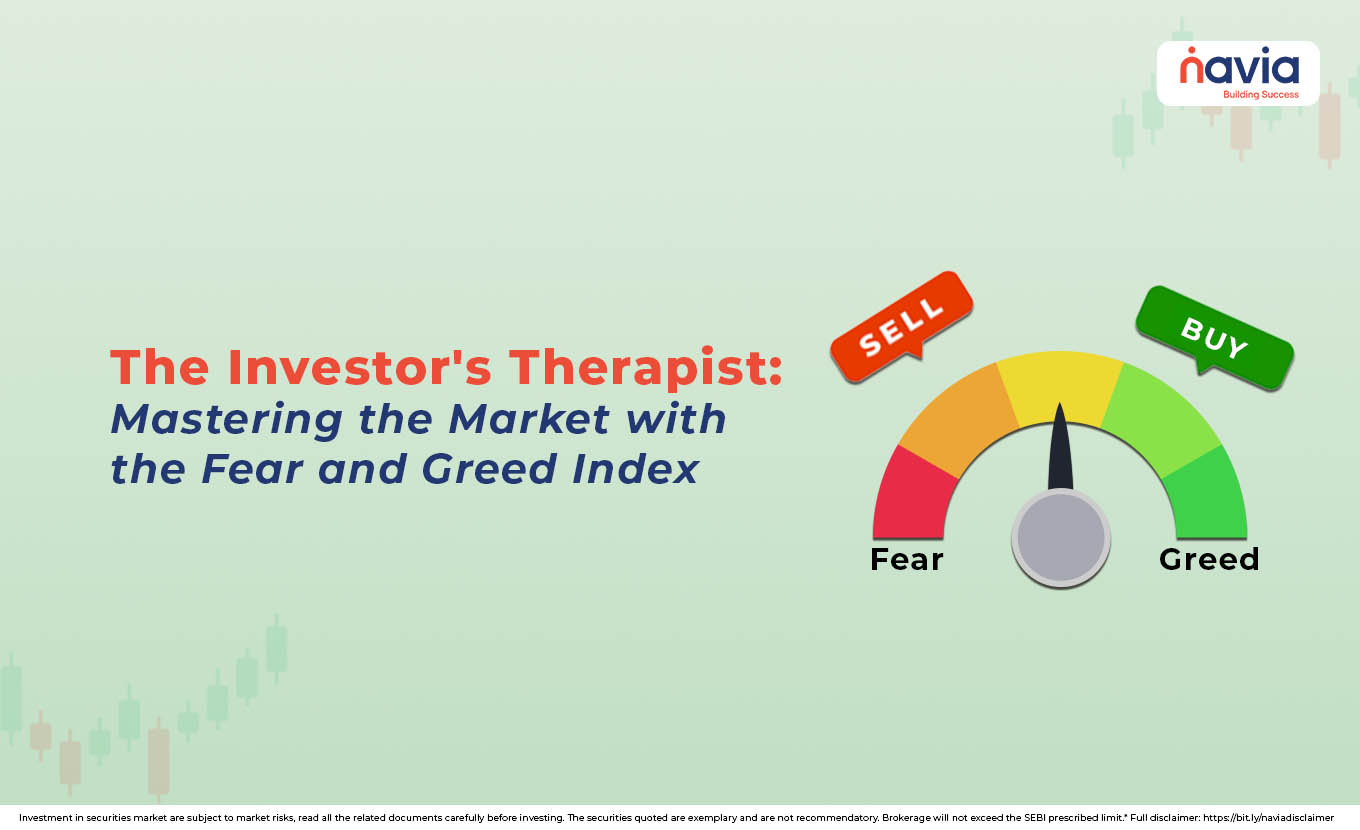How Inflation Impacts the Stock Market?

- What is Inflation?
- Effects of Inflation on Stock Market
- Historical Examples of Inflation
- Strategies to Tackle Inflation in Stock Market
- Conclusion
- Frequently Asked Questions
Inflation is the most discussed topic in economics and investing industry, because it’s affecting everything from the price of groceries to the value of investments. In the stock market, inflation can be both an opportunity and a risk, so understanding about how inflation affects stock market performance is crucial for making informed investment decisions.
In this blog, we are explaining about the effect of inflation on investment, its relationship with stock markets and the impact of inflation on stock market in India.
What is Inflation?
In simple terms, inflation refers to the increase of the general price level of goods and services over time. In the time of high inflation, your money buys less than it used to, for example, what cost ₹100 last year may cost ₹110 today if inflation is at 10%.
Moderate inflation is considered healthy for economic stability and growth, but continuous high inflation (inflationary pressure) can create uncertainty in the markets and economy.
Effects of Inflation on Stock Market
Now you have an idea of what inflation is, but how it impacts the stock market is still a doubtful question for some people. Let’s see it in detail.
Cost of Borrowing
If inflation rises, the central banks often raise interest rates to control it. Higher rates increase borrowing costs for businesses and that will affect their profits.
Consumer Spending
Inflation reduces disposable income, so that leads to lower demand for goods and services that will affect all the companies’ revenues.
Investor Sentiment
Rising inflation can create uncertainty, so the investors often shift to safer assets like gold or bonds, leading to market volatility.
Valuation Impact
Inflation reduces the present value of future cash flows, which can lead to lower stock valuations.
Foreign Investment
If the inflation of India is higher than other countries, foreign investors will withdraw their money and looking for better opportunities.

Historical Examples of Inflation
If we look back to the periods, the high inflation in India in the period of late 2000s and early 2010s, particularly 2009 to 2014 period. The higher inflation coincides with rising food and fuel prices. Recently after the Covid-19 pandemic India and so many countries experienced high inflation in 2022.
On the other hand, during moderate inflation years like, 2023-2024 and 2024-2025, Indian equities delivered steady growth because of the support from RBI monetary policies and government interventions. The retail inflation falls 6 years low of 4.6% in 2024-25 and lower in the fiscal year 2023-24 rate of 5.4% and 2022-23 at 6.7%.
Source: Press Information Bureau
Strategies to Tackle Inflation in Stock Market
Investors can consider certain strategies to help manage inflation risk in their portfolios.
Diversify Across Sectors
You can invest in sectors that perform well in inflationary environments, these include FMCG, IT and banking.
Focus on Quality Stocks
Before investing verify the companies have strong fundamentals and pricing power can survive inflation better.
Inflation Hedges
The assets like gold ETFs, REITs and index funds can help to balance your portfolio and that can act as a hedge on the inflation period.
Stay Updated on RBI Policies
Inflation directly impacts interest rate decisions, that has the power to reshape stock market performance.
Conclusion
Inflation is an unavoidable part and its influence on the stock market is crucial. When high inflation will reduce profits, slow demand and create uncertainty, but it also opens doors for opportunities in some sectors. So, being an Indian investor, it is necessary to stay informed, adapt strategies based on the market conditions are led to your long-term wealth creation.
Stay ahead of inflation with smarter strategies like diversification and focusing on quality companies.
Do You Find This Interesting?
Frequently Asked Questions
How does inflation impact the stock market?
Inflation, a general increase in prices, can harm the stock market in several ways. It can reduce consumer purchasing power, leading to a drop in demand for goods and services.
Does the stock market move up when inflation goes up?
Not necessarily. The relationship is often an inverse correlation, especially in the short term: as inflation rises, stock prices may fall, and vice versa. However, over the long term, stock prices may rise in line with inflation as company earnings and assets are nominally valued higher.
Do stock prices decrease with inflation?
Yes, stock prices can decrease with inflation, primarily due to two factors:
➔ Reduced Future Cash Flows: The value of future earnings is discounted more heavily during periods of high inflation.
➔ Monetary Policy: When inflation is high, central banks may raise interest rates. This makes borrowing more expensive for companies, reduces their potential for growth, and makes competing investments.
Who will hurt inflation the most?
Inflation hurts those on a fixed income the most, such as retirees living on pensions. Since their income doesn’t increase with prices, their purchasing power is severely eroded.
Who does inflation benefit?
Inflation can benefit borrowers with fixed-rate loans. As inflation rises, the real value of their debt decreases, making it easier to pay back with devalued dollars.
Is it good to invest when inflation is low?
Yes, it’s generally a good time to invest when inflation is low and stable. This environment is associated with lower interest rates and increased consumer spending, which can fuel economic growth and corporate profitability.
How to profit from inflation?
To protect against inflation, investors can consider assets that tend to hold their value or appreciate during inflationary periods. Some options include:
➔ Real Estate: Property values and rental income tend to increase with inflation.
➔ Commodities: Prices for raw materials like gold, oil, and agricultural products often rise with inflation.
➔ Value Stocks: Shares of established companies with strong current cash flows are often preferred overgrowth stocks, which rely on future earnings.
DISCLAIMER: Investment in securities market are subject to market risks, read all the related documents carefully before investing. The securities quoted are exemplary and are not recommendatory. Full disclaimer: https://bit.ly/naviadisclaimer.






